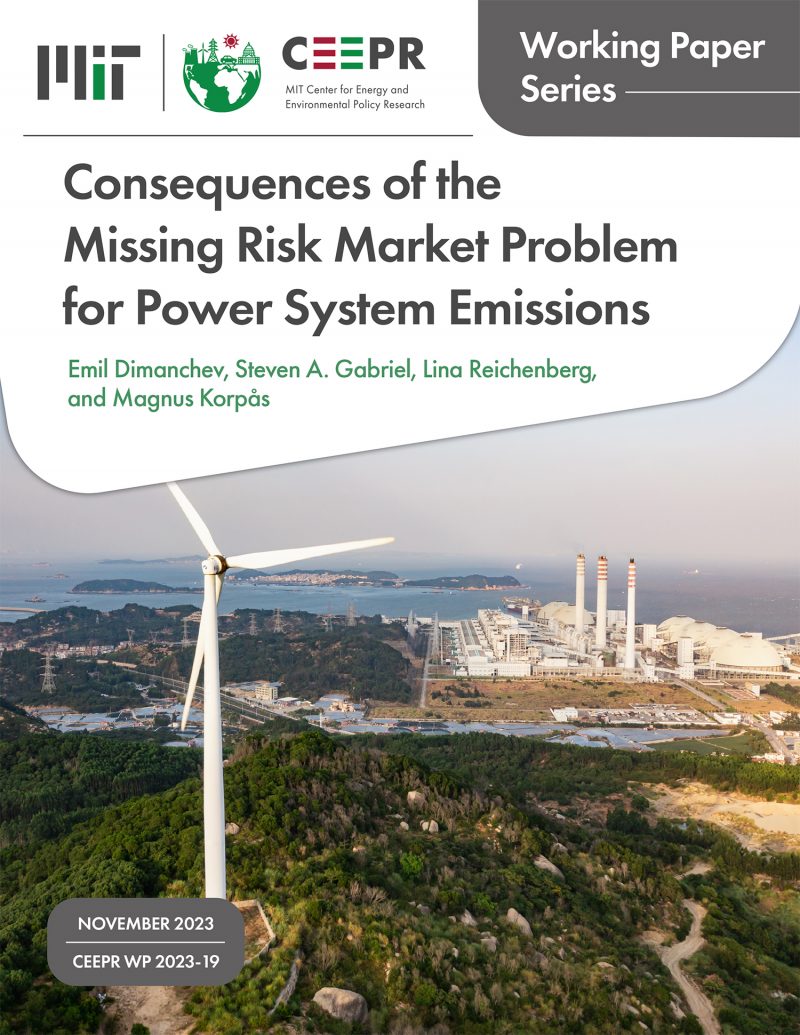Consequences of the Missing Risk Market Problem for Power System Emissions
Emil Dimanchev, Steven A. Gabriel, Lina Reichenberg, and Magnus Korpås
November 2023
Financial risk is a central concern for investors in electricity technologies. Investors are both risk-averse and unable to optimally manage risk due to the incompleteness of financial markets. This missing market problem may have important consequences for climate policy goals. However, research often omits this problem by assuming investors to be risk-neutral. Here, we develop a new model of risk-averse generation expansion with missing markets. Our approach reformulates the problem to facilitate solutions via integer programming, which enables us to address the multiple equilibrium property inherent to such models. We solve our model for a stylized power system featuring gas, wind, solar, and batteries under demand and gas price uncertainty. We find that emissions are higher if investors are risk-averse and markets for risk are missing, than if investors are assumed to be risk-neutral. Our results show that the missing market problem skews the investment mix away from wind, solar, and batteries and toward gas. These effects are even larger relative to optimal risk-averse planning with complete markets. The impacts of risk depend only partly on technologies’ capital intensities and are largely driven by how technologies interact at the systems level. Overall, our findings strengthen the case for policy measures that enable investors to efficiently manage risk.
Keywords: Incomplete markets; Risk aversion; Equilibrium generation expansion; Macroenergy systems; Decarbonization; Climate policy



